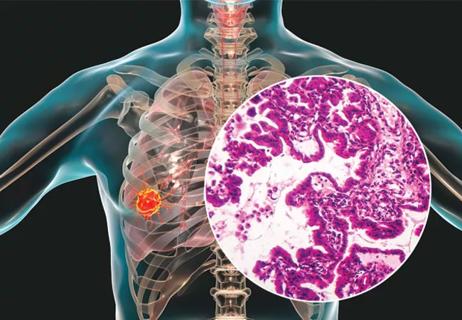Program plays key role in diagnosis and management of genetic kidney diseases

The high morbidity and mortality associated with kidney disease, the diagnostic and prognostic implications of genetic evaluations, and the decrease in the cost of genetic testing have all resulted in a tremendous need for renal genetics programs, according to Xiangling Wang, MD, PhD, founding director of Cleveland Clinic’s renal genetics program.
Advertisement
Cleveland Clinic is a non-profit academic medical center. Advertising on our site helps support our mission. We do not endorse non-Cleveland Clinic products or services. Policy
Due to the small number of renal genetics programs outside of a research setting in the United States, data from the real-world daily practice of a renal genetics clinic are limited. To help bridge the gap, Dr. Wang and other Cleveland Clinic clinicians published a three-year review of their experience with 309 patients referred to Cleveland Clinic’s renal genetics clinic between January 2019 and March 2022 in Kidney Medicine. To date, this is the largest single-center study of clinical practice in a renal genetics clinic in the United States.
“The study highlighted the importance of renal genetics clinics, which can improve the diagnosis and management of patients with genetic kidney diseases,” Dr. Wang says. “The conclusion that the renal genetics clinic improves the diagnosis and management of patients is consistent with the feedback and appreciation we are receiving from our patients and referring providers.”
The renal genetics program is a collaborative innovation between Cleveland Clinic’s Center for Personalized Genetic Healthcare and the Glickman Urological and Kidney Institute. It has created better outcomes for patients and resulted in the program’s rapid growth. “We are one of very few renal genetics programs in academic centers in the country, and they all have great value. We have good communication with other centers to collaborate,” says Dr. Wang.
As one of only a handful of double-trained nephrologists and medical geneticists in the United States, Dr. Wang lends extra value in her position as director of the clinic. Along with a thorough evaluation, genetic testing performed in Clinical Laboratory Improvement Amendments-certified labs and counseling from experienced renal genetic counselors, patients are managed from both a nephrology and a genetics perspective. “Patients feel they receive a 2-in-1 service with only one visit,” Dr. Wang says.
Advertisement
Dr. Wang says that her background as a nephrologist and geneticist also gives her a “unique vision to develop the program into not only a center of excellence in diagnosis but also a center of excellence in management for patients with genetic kidney disorders.”
A significant factor in the elevated interest in renal genetics is kidney disease’s high morbidity and mortality rates. According to the Centers for Disease Control and Prevention, an estimated 37 million adults in the United States — 15% of the population — have chronic kidney disease (CKD). Kidney disease is responsible for 15.9 deaths per 100,000 people, ranking 10th in causes of death.
One study cited in this article showed a monogenic cause in approximately 1 in 10 adults in a cohort of CKD patients; another found that around 30% of CKD cases with an onset of less than 25 years can be attributed to a monogenic cause. “So genetic kidney diseases individually might be rare, but collectively, they are not uncommon at all,” says Dr. Wang.
Genetic evaluation also facilitates personalized management strategies as well as family counseling. “Our study showed nearly half of the patients in the renal genetics clinic learned the genetic cause of their disease, which could also affect their family members,” explains Dr. Wang. More than two-thirds of patients with positive results received a new diagnosis and/or a change in their diagnosis. Of these, more than one-third had a significant change in the management of their disease.
Advertisement
Additionally, the cost of genetic testing has substantially decreased from thousands of dollars to a few hundred dollars in the last decade. Dr. Wang says this study found that 80% of patients seen in the clinic received insurance coverage for genetic testing, affirming the tests’ affordability and accessibility and highlighting the heightened demand for the expertise that renal genetics programs offer.
A 40-year-old patient with kidney stones since the age of 30 and recurrent fractures involving multiple bones since late childhood was referred to the renal genetics clinic. She had been treated with biphosphate and vitamin D for her osteoporosis. Her genetic testing found that she had a rare inherited disorder called hypophosphatasia, which affects the development of bones and teeth.
“The hallmark laboratory finding (of hypophosphatasia) is low alkaline phosphatase (ALP) activity,” Dr. Wang says. “Patients with hypophosphatasia have an increased risk of kidney stones, which can be exacerbated by excess vitamin D.” Although biphosphate is commonly used for the treatment of osteoporosis, it’s contraindicated for patients with hypophosphatasia.
The patient’s genetic testing resulted in significant changes in her treatment. She was started with enzyme replacement therapy to replace ALP, her vitamin D dosage was decreased and the biphosphate was discontinued. “She reported improvement in chronic pain and has not had any new fractures or kidney stones in one-year follow-up,” says Dr. Wang.
Advertisement
Expanding the utilization of genetic testing in kidney diseases depends on both patient access and clinician awareness, Dr. Wang says. Future studies exploring diagnostic patterns in different renal genetics patients, such as Black versus non-Black patients or adults versus children, will be essential in guiding the renal genetics clinic’s practice.
Currently, Dr. Wang says renal genetics specialists are urgently needed. “Cleveland Clinic is initiating a renal genetics training program to offer dedicated training to nephrology fellows and medical genetics fellows, as well as genetic counseling students nationwide,” she says. “We welcome interested candidates to apply.”
Advertisement
Advertisement

First-in-human phase 1 trial induced loss of function in gene that codes for ANGPTL3

Authors discuss ethical challenges associated with sponsored genetic testing

Universal testing could reduce expected costs compared to EGFR single gene testing

Research enables precision medicine beyond patients with changed mutational status

A well-prepared team meets the distinctive needs of patients at hereditary high risk

Introducing Krishna Aragam, MD, head of new integrated clinical and research programs in cardiovascular genomics

Genetic variants exist irrespective of family history or other contributing factors

CD36 loss-of-function variant accounts for large portion of risk in this population